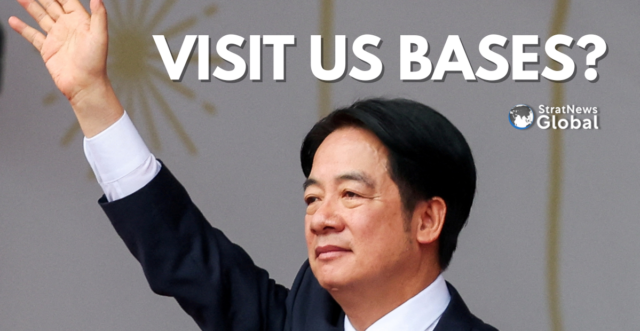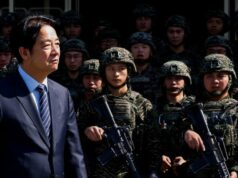Taiwan President Lai Ching-te is preparing to visit diplomatic allies in the Pacific, with potential stopovers in Hawaii and Guam. Sources close to the matter revealed the trip is expected in the coming weeks, marking Lai’s first overseas journey since taking office in May. The timing is sensitive, coming shortly after the US elections.
China, which views Taiwan as its territory, opposes any engagement between Taiwan’s leaders and foreign officials. Beijing labels Lai a “separatist” and has expressed strong disapproval of his international interactions.
Details of Lai’s Travel Plans
Six anonymous sources disclosed that Lai’s trip would include a stop in Hawaii, while four suggested Guam as an additional stopover. Both locations host significant US military bases. These stopovers would likely form part of Lai’s broader visit to Pacific nations with formal ties to Taiwan.
Taiwan’s diplomatic allies in the Pacific include the Marshall Islands, Tuvalu, and Palau. However, specific countries and dates for the visit remain unclear. Taiwan’s presidential office stated that no overseas trips are currently planned but promised to announce any developments at the appropriate time.
A US State Department spokesperson reiterated that Taiwan authorities should be consulted for further details.
Context And Regional Dynamics
This visit coincides with a shift in the US administration. While outgoing President Joe Biden has voiced support for Taiwan’s defence, President-elect Donald Trump’s campaign statements raised concerns in Taipei. Trump, however, nominated pro-Taiwan Marco Rubio as Secretary of State, indicating continued support for the island.
Stopovers in the US during Taiwan presidential trips are routine, often involving speeches and meetings with sympathetic US officials. In recent years, China has increased its military activities near Taiwan, citing concerns over “separatist acts.”
Beijing’s influence in the Pacific has also grown, with countries like Nauru switching allegiance to China earlier this year. For Taiwan, maintaining relationships with its Pacific allies remains critical as China continues its diplomatic pressure.
Historical Context of Stopovers
Taiwanese leaders, including Lai’s predecessor Tsai Ing-wen, have previously used US stopovers during Pacific visits. For instance, Tsai visited Hawaii during trips to Pacific allies in 2017 and 2019. Such visits have consistently triggered strong reactions from China, including military drills and warnings.
Taiwan’s government firmly rejects Beijing’s sovereignty claims. It insists on its right to foster international relations and for its leaders to travel abroad.
With inputs from Reuters
Research Associate at StratNewsGlobal, A keen observer of #China and Foreign Affairs. Writer, Weibo Trends, Analyst.
Twitter: @resham_sng





